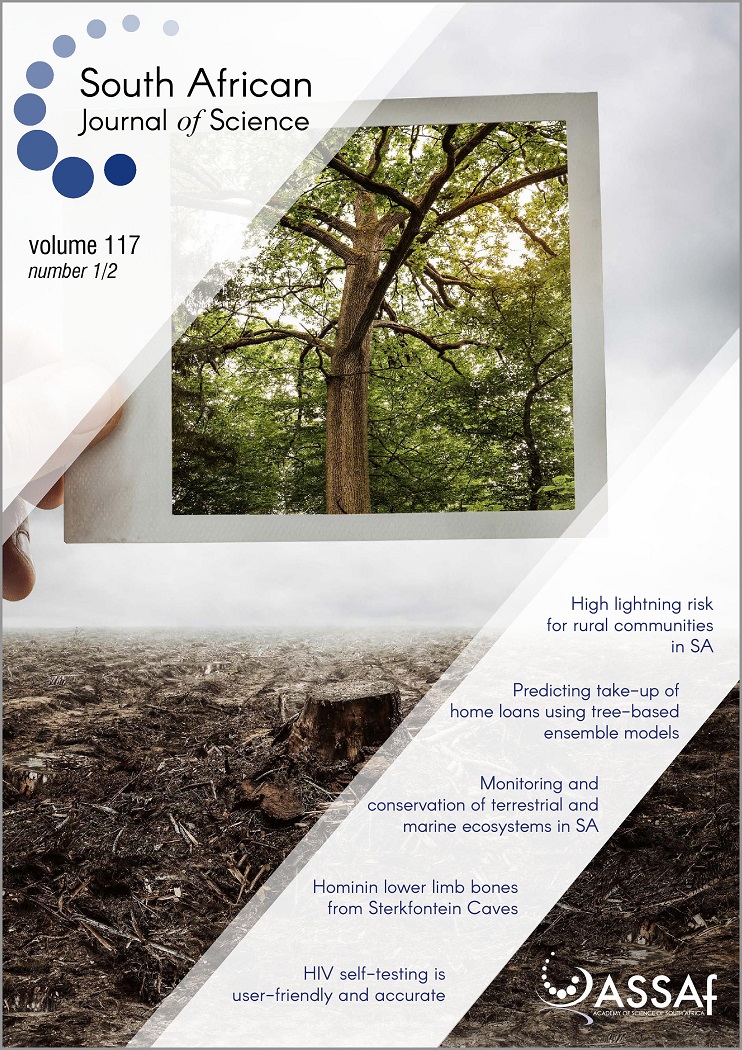Possible causes of a substantial decline in sightings in South Africa of an ecologically important apex predator, the white shark
DOI:
https://doi.org/10.17159/sajs.2021/8101Keywords:
marine predators, marine conservation, bycatch, Carcharadon carcharias, KwaZulu-Natal, GansbaaiAbstract
A decline in sightings of a top predator, the white shark (Carcharadon carcharias), in South Africa was quantified in order to identify possible causes for this decline. White shark sightings data across 8 years (2011–2018), recorded from a cage-diving vessel in Gansbaai are reported. A significant decline in mean total white shark sightings per boat trip (>6 in 2011 to <1 in 2018) and a 69% reduction in the probability of a sighting were found. Correlating with this decline in sightings is a rise in sightings of sevengill sharks (Notorynchus cepedianus) in False Bay and copper sharks (Carcharhinus brachyurus) in Gansbaai, as well as substantial ecosystem changes. The effects of lethal conservation measures such as the use of shark nets in KwaZulu-Natal; the direct and indirect effects of overfishing including a reduction in smoothhound (Mustelus mustelus) and soupfin (Galeorhinus galeus) sharks; and novel predation on white sharks are discussed as possible causative factors for this decline in white shark sightings.
Significance:
- The results of this paper highlight the need to reassess the impact of marine conservation initiatives and fishing practices. Failure to do so could seriously affect ecologically and economically important marine species. This paper reveals a potentially serious decline to the South African white shark population, characterised by a substantial decline in white shark sightings. This decline correlates with the overfishing of prey species, bycatch, the use of lethal gill nets and ecological changes such as the novel presence of orca. Better marine management is required if South Africa wishes to keep a healthy white shark population.
Published
Issue
Section
License

All articles are published under a Creative Commons Attribution 4.0 International Licence
Copyright is retained by the authors. Readers are welcome to reproduce, share and adapt the content without permission provided the source is attributed.
Disclaimer: The publisher and editors accept no responsibility for statements made by the authors
How to Cite
- Abstract 2083
- PDF 1360
- EPUB 173
- XML 225













.png)